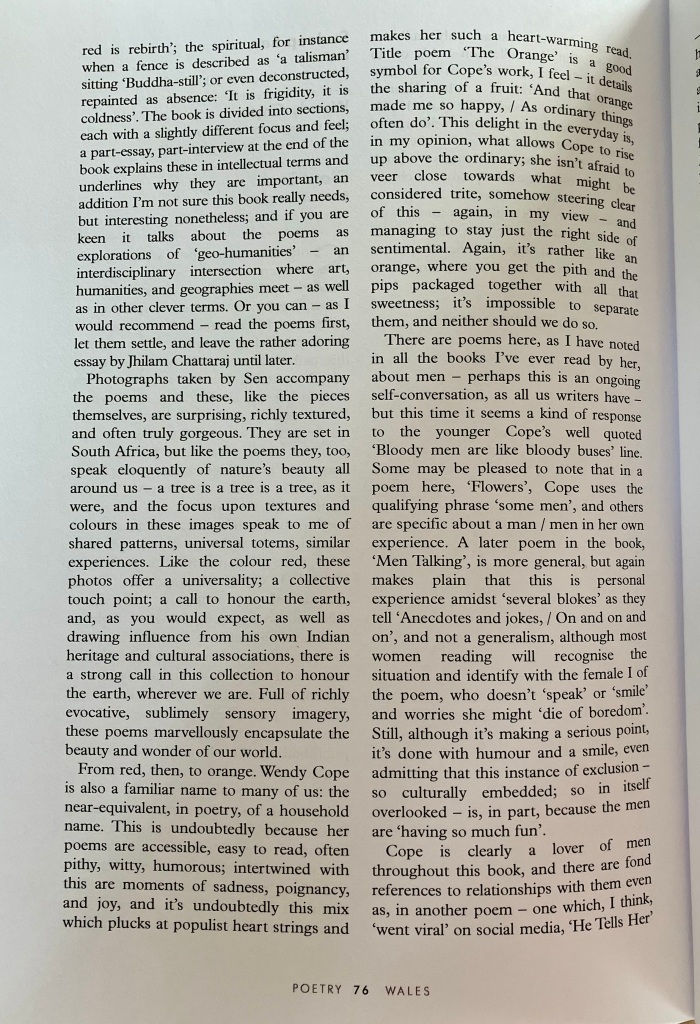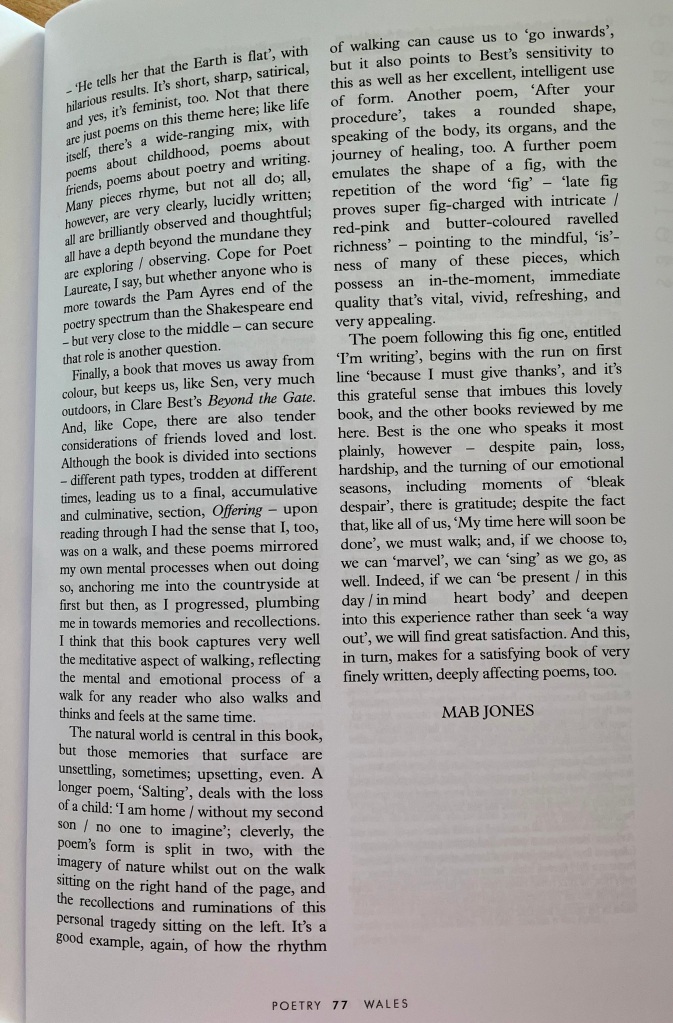My poetry pen has to be set aside for a while after a book comes out, or allowed to rest under whatever I’m reading, listening to, looking at. This happens after every publication, though the past nine months (since the publication of Beyond the Gate) have provided a particularly spacious space!
At such times, my impulse to write poetry seems to be diverted into journaling, writing reviews and emails to friends. But poetry gets around – sometimes its energy hops into prose projects, or edges into planning new collaborations. Meantime, teaching and mentoring continue to scaffold my days and weeks, while I wonder if poetry will come back as actual poems.
The pause lasts a little longer after each publication. Maybe, one day, the urge to write poems won’t return at all.
I love the process of hatching a poem, writing, revising, revising, revising and eventually letting go of it (often into the bin). But I’m realistic – there are so many poems in the world, and so relatively few people who read them. We need poetry in our lives more than ever, I sincerely believe that, but I also know that even as a big reader of poetry myself, I can’t read everything I want to. Do we really need MORE poetry? There is SO much, and so much of the so much is so good!
As well as what’s being written and published right now, there’s poetry from the past, and in other languages, and in translation. There’s poetry that’s been forgotten and should be remembered. Poetry online, in pamphlets, in books. There are readings and launches and slams on Zoom and in pubs. Poems on phones, iPads, laptops and…
It can be overwhelming. But does it have to be? No one can read everything; everyone can dip in.
I’ve started a new ‘flash’ poetry-reading regime. Each time I need a break from my desk (about every ninety minutes works for me – to stretch legs, rest fingers and wrists, change focal length, make tea) I either go onto the Poetry Archive or Poetry Foundation websites, or iamb – poetry seen and heard, on my phone, and read or listen to a poem, (or both). Or I randomly select a book of poetry from my shelves, open it anywhere and read one poem. I walk the room while I listen or read.
This means six or eight poems a day take me ‘by surprise’ – supplementing other poetry I’m reading more methodically, generally in book form. My new regime takes no forethought or effort. And I love the serendipity. Today I’ve already fallen upon:
Rol-J Williams’ ‘Colours of Summer’ (Poetry Archive Now Wordview 2023)
Olivia McCannon’s ‘Map of the Moor’ from ‘Exactly My Own Length (Carcanet 2011)
David Thompson’s ‘No Eden’ from Under the Radar no.30
Jeremy Hooker’s ‘Bless Treharris Park’ from Poetry Wales no.59
And it’s only early afternoon. Condensed shots of poetry, wonderful energy to bring back to my desk. To take on my lunchtime walk. And loads better for me than biscuits.
I love this way of surprising myself with poems.
And now – an intermission…. to find a poem…
And it was… Sue Spiers’ ‘Borgan Borgan’ on iamb poetry seen and heard.
NB For longer listens, and to connect with particular poets or ways of thinking about poetry, there are lots of good podcasts and the like, including Planet Poetry, The Poetry Exchange, The Poetry Bath and others.
Just as I’m thankful to be a reader of poems and to find ways of placing them as surprises throughout my day, I’m grateful when others read my poetry – and even more grateful and touched when they write about their response to it. Recently I’ve been delighted with two generous reviews of Beyond the Gate. Mab Jones reviewed it alongside Sudeep Sen’s Red and Wendy Cope’s The Orange and other poems in Poetry Wales no.59, and Pam Thompson reviewed it in Orbis no.206 – ending with the lovely sentence: ‘Music and art infuse this gorgeous collection.’
Along with Charlotte Gann’s review on The Friday Poem, Alex Josephy’s on London Grip, and Jeremy Page’s in The Frogmore Papers, these latest reviews remind me what a privilege it is to know that people have read my work, have connected with the poems and the ideas. Because writing and reading are all about making connections.
Special thanks to the editors of the journals, websites and literary magazines that carry reviews of poetry, and of course to those who write them.
In Beyond the Gate, there’s one longer poem – ‘Salting’ – that I may not often present at readings; it speaks of my experience of elective termination of pregnancy. Helena Nelson and I recorded a conversation we had about this poem, and some others in the collection, and we read the poems as part of that conversation. If you’d like to listen, there’s a link to the YouTube recording ‘Opening the Gate’ here on the HappenStance blog.
Long live the connectivity of poetry. And long may poems surprise us.
PS And talking of surprises… a late addition to this post: I have reason to be particularly grateful to Dundee University Review of the Arts who have just published a sensitive and thoughtful review here by Beth McDonough of my Waterloo Press 2019 collection Each Other. I’m delighted. Each Other was published just a couple of months before the Covid pandemic struck, and most of my readings were cancelled of course. So it’s great to have this bonus recognition of that book.





I enjoyed this. It’s good to hear someone speak up for the poet as reader of poetry. And thanks for the examples you cite. As for poetry podcasts, I can recommend Frank Skinner’s, which has given me a lot of pleasure and illumination.
Thanks for this – I’ll definitely go and listen to Frank Skinner’s podcast – X